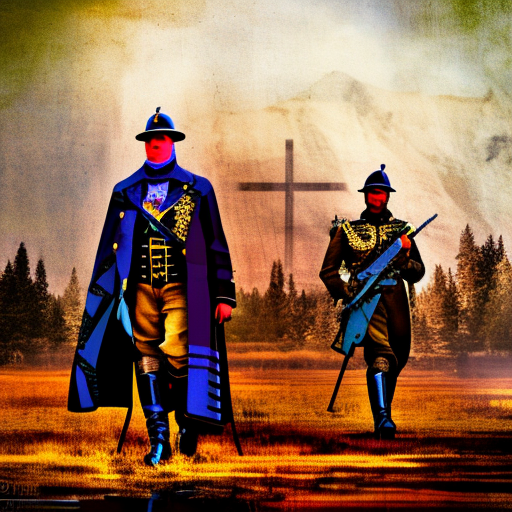One-line Summary:
Gods and Generals is a historical novel that explores the lives and experiences of key figures during the American Civil War, highlighting the complexities of war, honor, and loyalty.
Brotherhood and Loyalty Amidst the Chaos of War
Gods and Generals, written by Jeff Shaara, is a gripping historical novel that delves into the lives of several prominent figures during the American Civil War. Set against the backdrop of one of the most tumultuous periods in American history, the book explores the complexities of war, honor, and loyalty.
The story primarily revolves around four key characters: Robert E. Lee, Thomas “Stonewall” Jackson, Winfield Scott Hancock, and Joshua Chamberlain. Each character represents a different facet of the war and provides a unique perspective on the events that unfolded.
As the war looms, Robert E. Lee, a respected military officer, is faced with the difficult decision of choosing between his loyalty to his home state of Virginia or remaining true to the Union. Despite his reservations, Lee ultimately decides to fight for the Confederacy, leading the Army of Northern Virginia. Throughout the book, Lee’s character is portrayed as a man of honor and integrity, torn between his personal beliefs and his duty to his country.
On the other side of the conflict, Thomas “Stonewall” Jackson emerges as a brilliant military strategist. Known for his unyielding determination and unwavering faith, Jackson becomes a key figure in the Confederate Army. His tactical brilliance and unconventional methods earn him the respect and admiration of his troops, as well as his adversaries.
Meanwhile, Union officers Winfield Scott Hancock and Joshua Chamberlain find themselves thrust into the chaos of war. Hancock, a skilled leader, faces the challenges of commanding troops and making difficult decisions on the battlefield. Chamberlain, a college professor turned soldier, struggles to find his place in the war and grapples with the moral implications of fighting for a cause he is not entirely convinced of.
The Complexity of War and the Human Experience
Gods and Generals explores the multifaceted nature of war, highlighting the profound impact it has on individuals and societies. The book delves into the emotional turmoil experienced by soldiers on both sides, as well as the toll war takes on their families and loved ones.
Shaara skillfully portrays the human side of war, emphasizing the personal sacrifices made by soldiers and their families. The novel captures the fear, camaraderie, and resilience of those caught in the midst of battle, painting a vivid picture of the harsh realities faced by both Union and Confederate soldiers.
Additionally, the book delves into the political and social complexities of the time, shedding light on the motivations and ideologies that fueled the conflict. It explores the tensions between the North and the South, the issue of slavery, and the struggle for states’ rights.
Key Takeaways:
- Gods and Generals provides a comprehensive and engaging account of the American Civil War, offering insights into the lives and experiences of key figures on both sides of the conflict.
- The novel highlights the complexities of war, including the moral dilemmas faced by soldiers and the impact of war on individuals and society.
- Shaara’s vivid storytelling and meticulous research bring the historical events to life, making the book an immersive and compelling read.
“War is cruelty. There is no use trying to reform it. The crueler it is, the sooner it will be over.” – William Tecumseh Sherman
In conclusion, Gods and Generals is a captivating historical novel that provides a deep and nuanced exploration of the American Civil War. Through its vivid characters and compelling storytelling, the book offers valuable insights into the complexities of war, honor, and loyalty. It serves as a reminder of the sacrifices made by those who fought during this pivotal period in American history.












